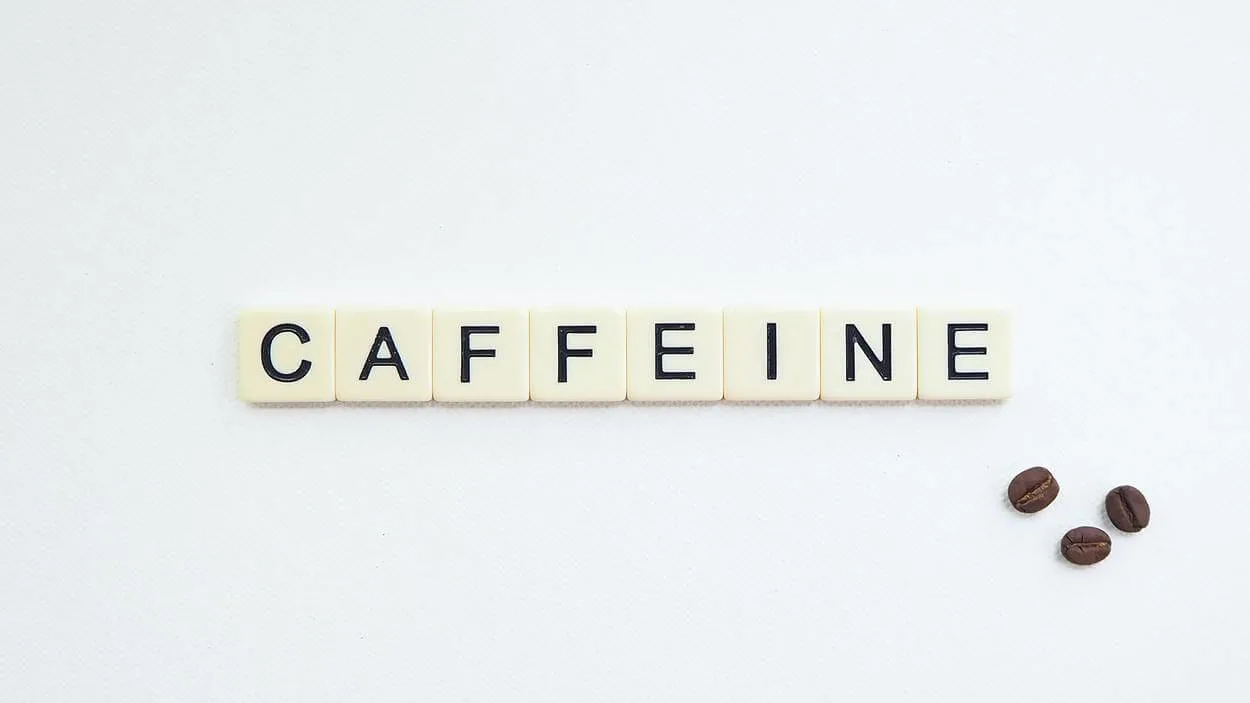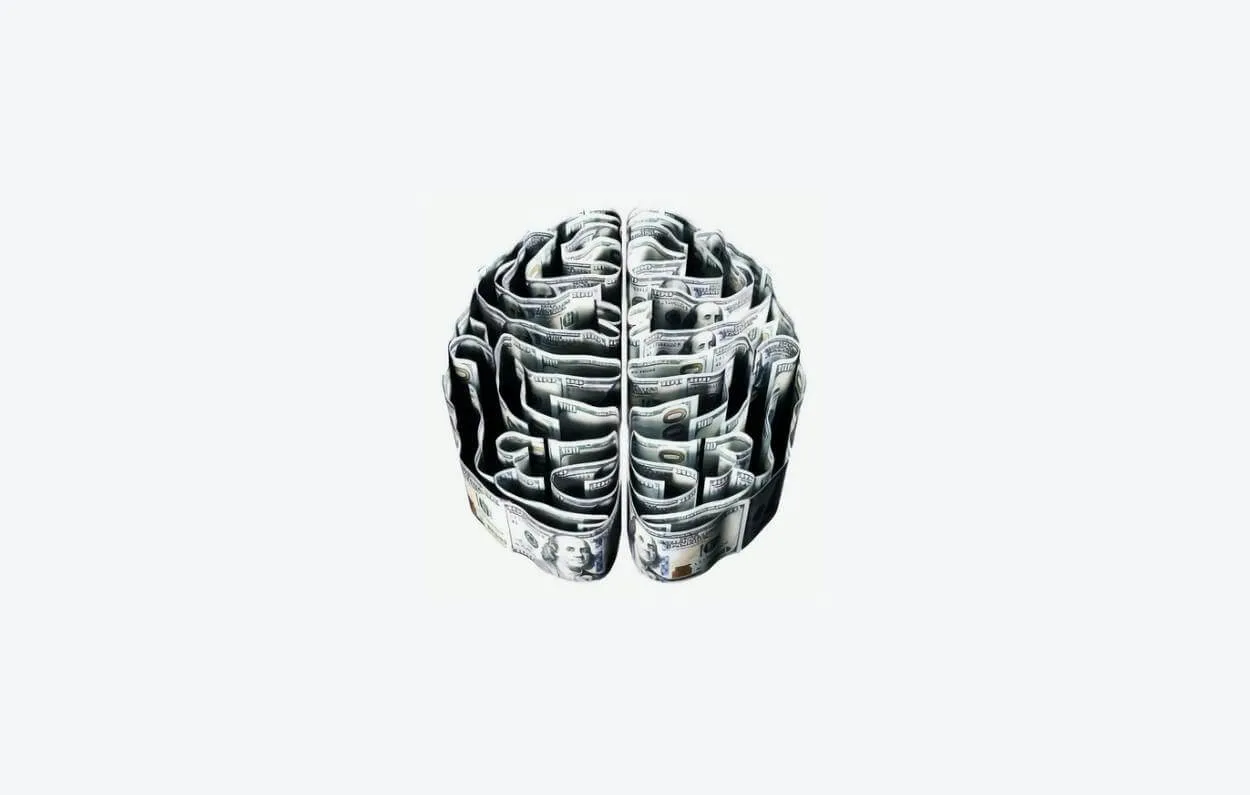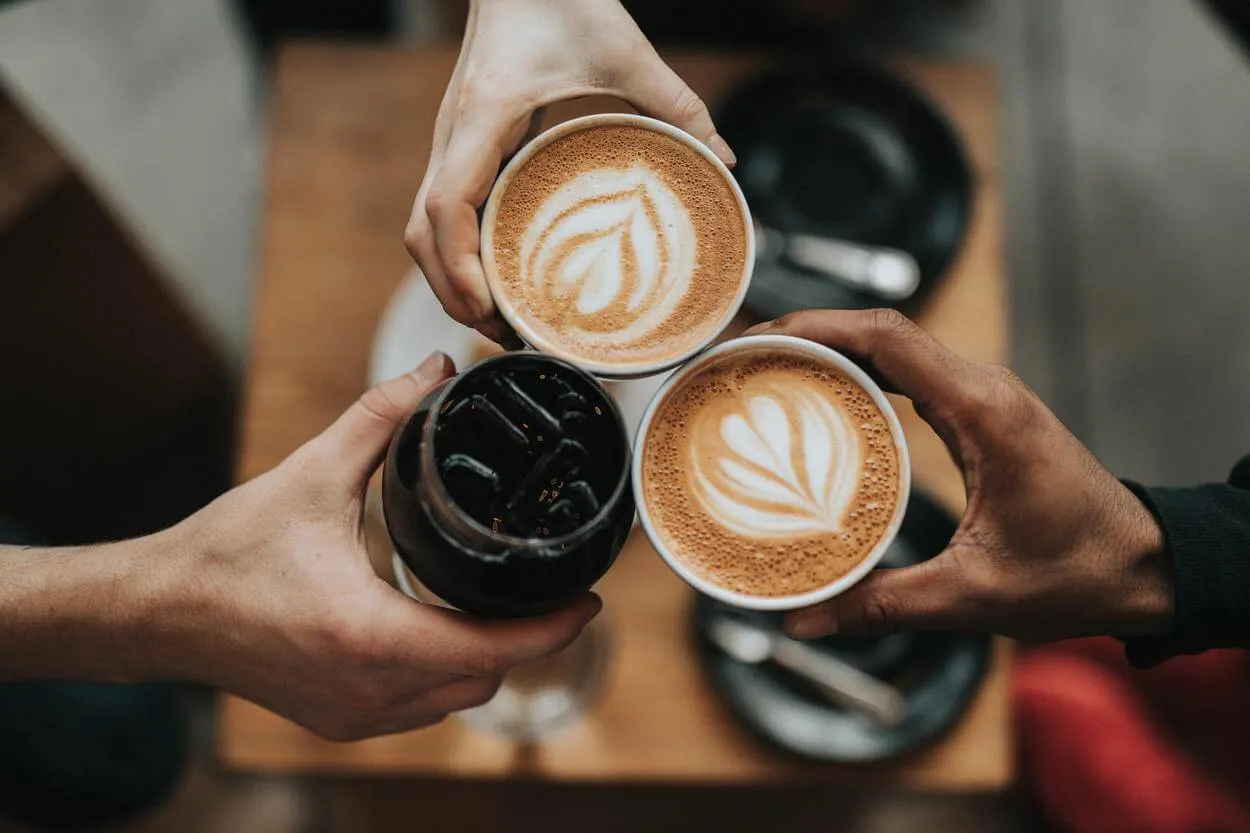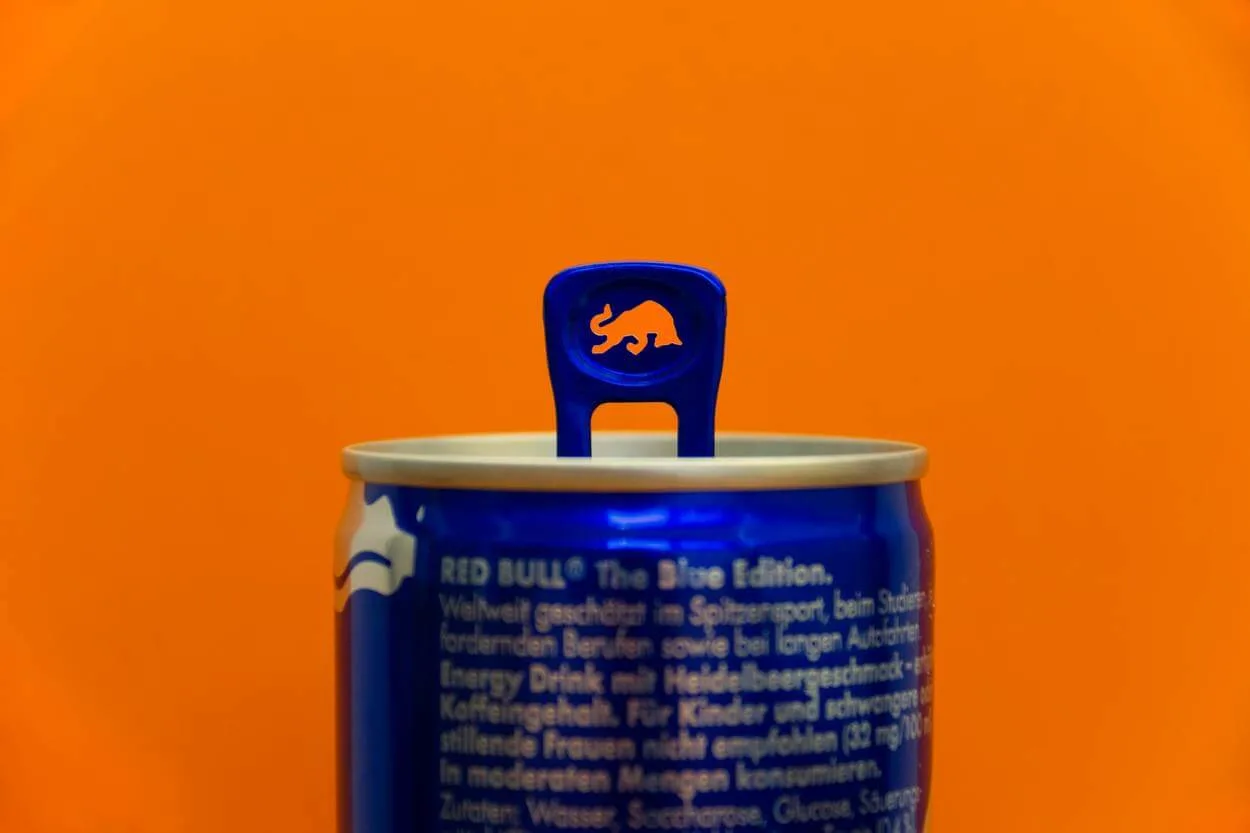With our day-to-day lives becoming more demanding and hectic by the minute, it can be pretty tedious to keep performing at your best.
One of the most popular ways to keep up with such a pace is energy drinks. Millions of people get the extra energy needed to get through the day from energy drinks.
Caffeine, working along with other ingredients, gives energy drinks their characteristic energy boost.
But how much caffeine is in an energy drink?
I will answer that question and more in this article, so be sure to read it to the end.
Let’s begin.
Contents
What is caffeine?

Caffeine is known as a psychoactive stimulant that affects the central nervous system. Unlike many other stimulants, it is unregulated in most countries.
Caffeine occurs naturally and can also be synthesized in the laboratory. The natural sources include tea leaves, coffee beans, guarana seed, etc.,
We humans have used beverages containing caffeine for millennia as a way of keeping alert and boosts our performance.
The oldest of such beverages is tea. It has been around since 2737 B.C and even now is the most consumed beverage in the world, excluding water.
But in the modern world, energy drinks are becoming a very prevalent source of caffeine, mainly because they have additional powerful ingredients.
How does caffeine work?

Caffeine works as a stimulant by affecting our central nervous system; I’ve said this earlier, but what does it mean?
Caffeine is absorbed into our blood flow about an hour or less after its consumption.
It means that after the caffeine has entered the blood flow, what it then does is that it tries to block the part of our brain that makes us feel fatigued.
I mean that it blocks the adenosine, an inhibitory neurotransmitter, from acting on its receptors.
This increases the amount released of other neurotransmitters like dopamine and norepinephrine, which allow neurons to fire faster in our brains.
This is very important as it helps us stay more alert and keep working for more extended periods.
It also does that it slightly raises the body’s temperature through thermogenesis. As a result of this, our heart rates increase by a bit, which boosts physical performance.
Why is caffeine the main energy drink component?
Caffeine is an essential component in an energy drink because of its stimulating effects.
The stimulation, both physical and mental, affects caffeine acting on the heart and the brain.
This is why energy drinks can help you stay awake for longer and remain alert for longer as well.
Many people consume energy drinks before long physical endeavors, like a full day of work, because it enhances our physical performance by a bit.
I’m not saying that caffeine is the only ingredient responsible for the energy boost; even sugar/sucrose can give you an extra bit of energy. Though the energy burst from sugar often ends in an energy crash.
How much caffeine is in an energy drink?
It’s hard to answer that question because the caffeine contents in energy drinks vary a lot.
Some brands out there like Krating Daeng have only 50 milligrams of caffeine, while other brands like Celsius have up to 200 milligrams of caffeine.
Bang Energy goes even further beyond that, with 300mg of the stimulant.
But generally speaking, most normal energy drinks have anywhere between 80 milligrams to 150 milligrams of caffeine in a serving.
Brands with higher amounts than that must label their products as ‘highly caffeinated.’
The brands lower than 80mg in caffeine are called low-caffeinated and are marketed more towards caffeine-sensitive people.
Popular Energy Drinks’ Caffeine Content
For reference, I’ve prepared a chart listing some popular energy drink brands (forgive me if I missed your favorite one) along with their caffeine content.
I’ve also divided them into three categories: High caffeine, moderate caffeine, and low caffeine.
High-Caffeine Energy Drinks
These are the heavy-hitters, the energy drinks made for people who need extreme levels of caffeine in a single serving.
Here are some examples of such energy drinks:
| Brands | Caffeine |
| Bang Energy | 300mg |
| Celsius | 200mg |
| Reign | 300mg |
| NOS | 160mg |
| Monster Energy | 160mg |
| 5-Hour Energy | 200mg |
If you have a low caffeine tolerance, it would be best to try energy drinks with lesser amounts. I’ll suggest more about that later.
Moderately Caffeinated Energy Drinks:
This category contains energy drinks that have 80-150mg of caffeine.
Some of these drinks are:
| Brand | Caffeine |
| Red Bull | 80mg |
| Coca-cola Energy | 114mg |
| Mountain Dew AMP Energy | 142mg |
| V Energy | 85mg |
This is great for people who don’t want too much caffeine but need a certain amount of buzz.
Low Caffeine Energy Drinks
These energy drinks are best for people who are more sensitive to the effects of caffeine than others.
I like to think of energy drinks with caffeine contents below 80mg to be low in caffeine. These are somewhat a rare specimen among energy drinks, but here are a few examples:
| Energy Drink | Caffeine |
| Krating Daeng | 50mg |
| Shark Stimulation Energy | 50mg |
| Arbonne Fizz | 50mg |
If you’re someone who just wants to kickstart the day with some help, this is for you.
Energy Drinks vs Coffee
Energy drinks vs. coffee is a debate that has been in everyone’s mind, and there are no signs of it stopping any time soon.
Here’s my take on this dilemma: I think both are great.
Let me explain why each contender has its place in our lives:
Coffee

I love the taste of coffee. It is probably one of my favorite beverages in the world. But that doesn’t mean that coffee is better than energy drinks.
The main arguments that coffee lovers give in favor of coffee are:
- Most coffee is entirely natural and has no chemical additives, unlike some energy drinks.
- It has little to no calories. Many energy drinks are loaded with calories
- You decide how much sugar you put in it, unlike some energy drinks which already have tons of sugar in them
- Coffee has almost no side effects, while energy drinks have been the cause behind the hospitalization of many people.
- Coffee tastes better, according to some people.
Energy Drinks

The thing is, energy drinks are fantastic too. And I don’t think that they are inferior to coffee either.
Anyways, here are the arguments I found:
- Energy drinks are demonized for having high caffeine, but coffee has more or less identical amounts of caffeine in it.
- Energy drinks are just incomparably more convenient and easy to consume. You don’t have to spend any time preparing them like you would with coffee.
- Coffee doesn’t have any other healthy ingredients that energy drinks have.
- Energy drinks taste better, according to energy drink lovers or people who don’t like the bitter taste of coffee.
As you can probably guess, none of the arguments presented by both sides is entirely wrong. Except for the taste ones, that’s just a matter of preference.
So what I would advise you to do if you can’t decide between energy drinks and coffee finds a balance between the two.
Find yourself a clean, sugar-free, and low-calorie energy drink that has moderate amounts of caffeine, and you can drink that in conjunction with coffee.
As long as you don’t go over the 400mg caffeine limit set by the FDA, you can drink an energy drink and a cup or two or three of coffee a day and be fine.
Benefits of Caffeine In Energy Drinks
Now that we have gotten the energy drinks vs. coffee argument out of the way, we can discuss the effects of caffeine in general on our bodies.
Caffeine is the most widely used psychoactive drug globally, and it’s for a reason. If consumed in moderate amounts, it can give you some fantastic advantages.
Apart from the obvious benefits like an increase in energy, here are some of the health benefits of caffeine:
Helps Burn Fat Faster
Caffeine is used in most of the available fat-burning supplements, and rightly so because it’s one of the few substances proven to increase metabolism.
A study shows that caffeine helps burn fat at a 3-11% faster rate.
Significantly improves Physical Performance
Another thing that caffeine is excellent for is improving physical performance.
According to this study, it does this by causing our body to break up extra fat to burn as energy. It also releases adrenaline, which increases physical performance by 11-12%.
Prevent Parkinson’s And Alzheimer’s Diseases
It has been shown in some studies that people who regularly consume caffeine have a reduced risk of conceiving both Parkinson’s and Alzheimer’s diseases.
Decreased Risk Of Type 2 Diabetes
A study has found that people who increased their caffeine consumption by an equivalent of one or more cups of coffee were less likely to get Type 2 Diabetes.
Better Memory And Increased Cognitive Function
Caffeine has been known to increase cognitive function while making you more alert and focused.
But this study has found that consuming caffeine after studying can improve long-term retention.
What is the optimum amount of caffeine?
Different people need different amounts of caffeine to stay alert, which is called caffeine tolerance.
Everyone consumes different types and quantities of caffeinated food or beverages throughout the day.
I think you may be starting to see the problem here: Different people need different amounts of caffeine in an energy drink, so it’s hard to define a single quantity as ‘optimum.’
But my point is, if you’re someone who drinks two or three cups of coffee in a day, then you shouldn’t have an energy drink with more than 100mg of caffeine.
But if you don’t usually consume caffeine, you may even have a drink with more than 200mg or even 300mg of caffeine, like Celsius or Bang Energy.
The key here is to be aware of your caffeine intake and choose an energy drink accordingly because 400mg is the limit. Go beyond that, and you may suffer adverse effects.
Caffeine In Energy Drinks: Side Effects
Although caffeine is an excellent substance with many benefits, it can be very harmful in high doses.
For reference, 400mg a day is considered the upper limit for energy drinks. You can sometimes go beyond that, but regularly drinking coffee will cost you.
Following are the adverse effects that may be attributed to high doses of caffeine:
- Anxiety
- Restlessness
- Insomnia
- Increased heart rate
- Headaches
- Dizziness
- Decreased sensitivity to its effects. You will need more caffeine to get the same result.
It would be best to limit your caffeine intake based on your tolerance. To find out, drink small increments a day and see its effects on you. Never drink too much at once.
Can children drink energy drinks?
No, kids and teens shouldn’t drink energy drinks. Many energy drinks market their products to teens and adolescents. Though this approach has been met with immense criticism, they show no intention of stopping.
I have frequently heard from people defending this argument that children are allowed to drink coffee, so why not energy drinks?
I mean, coffee does have a higher caffeine density than energy drinks, so it should be safe for children to consume energy drinks as well, surely?
Well, no.
Caffeine isn’t the only reason why some consider energy drinks unhealthy. They have many calories, high sugar contents, and chemical additives.
Even the sugar-free versions have artificial sweeteners, which may or may not be suitable for everyone.
Although it is generally safe for adults to consume energy drinks in moderate amounts, children shouldn’t be allowed access to them as they have a lower tolerance of the ingredients used in the beverages.
Final Words
It is tough to say how much caffeine is in energy drinks as the amounts vary a ton from brand to brand.
Some have up to 350mg of caffeine in them, while some have as low as 50mg.
There is one thing I can tell you for sure, though. Caffeine can be either your best friend or your worst enemy, depending on the dose you ingest.
Therefore, as long as you are actively thinking about your caffeine consumption and taking steps to prevent overdosage, you can reap all the rewards offered by energy drinks and not worry about the consequences.
